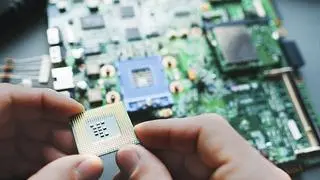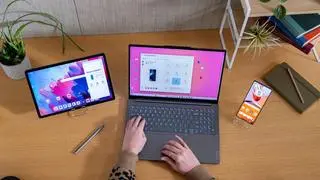I remember the time I took the leap from Windows 98 to Windows XP. I remember being welcomed by the simple yet beautiful default wallpaper – lush, green hills, dotted by daffodils and a blue sky with fluffy white clouds over them.
After years of a dull grey environment that was Windows 98 (and Windows Millennium Edition for a short while), the bright desktop theme of XP was something I, and many other users, fell in love with. The interface was new with smooth edges and three-dimensional elements, yet there was a sense of familiarity.
And though I moved on from XP as soon as Windows Vista was introduced, I went on to find the green grass and blue skies wherever I went, for a long time. But it’s finally time for Windows XP to go, because Microsoft has announced that it is discontinuing support for XP on April 8 and utilise its resources for other projects.
Call it an obituary, but right now all I can think of is how many crucial lessons the operating system taught all of us. And looking back at the time when we all started using Windows XP, I can only say that operating systems have matured. A lot.
Ease of useIf you remember the time when Windows 8 was introduced to the public, a lot of users complained about a rather steep learning curve. Well, it was sort of expected as PC users were more accustomed to easy transitions between old and new operating systems.
The move from Windows 98 to Windows XP, for example, was a very easy one for me. Sure, there’s a lot that goes into building a new operating system, but for a layman what matters most is getting-around-the-OS part. With XP, the Start Menu button got a new design, but its positioning remained the same. And though the Start Menu itself was reworked to have two panes, it didn’t take more than 5 minutes to feel at home with the new interface.
Moreover, Windows XP didn’t really require any major hardware upgrades. In fact, the operating system ran on for so long because basic users didn’t need to upgrade their systems. In certain schools, colleges and offices where only basic software was used (say, for document processing or surfing), XP still enjoys a really long run.
It’s safe to say the Windows XP did teach a lesson or two about easy transitions.
SecurityDuring the life cycle of Windows XP, I think Microsoft and other operating systems learnt more lessons about security than the end users. The first decade of the new millennium saw cyber threats increase exponentially, and Windows XP was vulnerable on many occasions. If we were to look at the security framework of the latest operating systems, we would see the lessons that they have learnt from XP.
Microsoft also understood that pirating an operating system had become extremely easy, during the peak usage years of Windows XP. And in a market like India, where assembled PCs sold like hot cakes in the early 2000s, even users couldn’t tell if their copy of Windows XP was genuine or not. Microsoft then worked on the problem and it’s quite hard to pirate an operating system these days.
There’s a lot that technology enthusiasts can learn from Windows XP. For instance the fact that it was one of the earliest operating systems for mobile devices, or, the fact that it brought about a new level of desktop customisation.







Comments
Comments have to be in English, and in full sentences. They cannot be abusive or personal. Please abide by our community guidelines for posting your comments.
We have migrated to a new commenting platform. If you are already a registered user of TheHindu Businessline and logged in, you may continue to engage with our articles. If you do not have an account please register and login to post comments. Users can access their older comments by logging into their accounts on Vuukle.